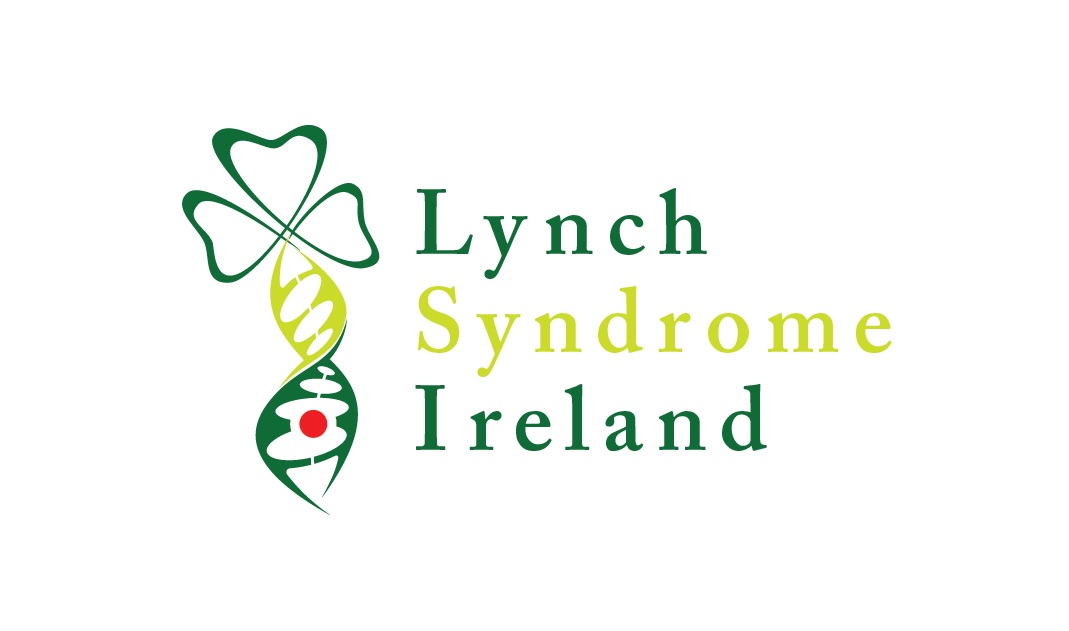
Lynch Syndrome
What is Lynch Syndrome? (Thanks to Sir John Burn Lynch Syndrome UK Conference 2015)
We all inherit our DNA 50% from each parent. If we have LS then one of our repair genes is good while the other one is faulty.
Think of the repair genes as two Doormen on the door at a night club. Nothing is going to get past them that shouldn’t. This is a person without LS
Imagine one of the Doormen needs the toilet and walks off. We still have one doorman watching and keeping us safe. This is a person with LS
Imagine the other doorman now needs to toilet and leaves. Nobody is now watching door. This is what happens when one good gene goes faulty for what ever reason. Anybody can just walk in now
In brief, we only have one repair gene looking out for us and if it gets damaged in a cell we are left with no protection.
See Lynch Syndrome Ireland Web Site + Facebook Page + Twitter

IMG_1592.jpeg

It was not a surprise, in 2012, when I became a member of the Lynch Syndrome family.
I was still in my 50’s(had two siblings, 3 adult children and 3 grandchildren) and on chemo following a hemicolectomy.
My membership was courtesy of my mother. She had died at the age of 64 with colon cancer in 1988. She had 4 siblings two of whom had died from cancers and the other two had Huntingtons and all had died in their 60’s.My mother’s father had died in his 50’s. You would think that the above was sufficient to prompt some form of questioning in relation to what genetic defects I had inherited….but it didn’t.
In the 90’s with support and encouragement from my wife I had taken a genetic test in relation to Huntingtons following on from one of my uncles being diagnosed with the disease. The main driver for the test related to my children. As a parent I firmly believe it is our responsibility to undergo these genetic tests not only for your own sake as it may relieve the concern and necessity of our children having to undergo such tests. My result was negative so I was able to discount this defect from my life and my children did not have to be concerned in the future. I still did not concern myself with any other possible genetic defects that might be lurking in my gene pool.
In 1994 I had one sibling a younger brother. By the time I had the test for “Huntingtons” our family had increased. We then “ inherited” an older sister, an American citizen, who through her tenacity had managed to trace her siblings. Unfortunately too late to meet her mother who had stayed with her for the first three and a half years of her life in a mother and baby home and had no choice when her daughter was given up for adoption. Our mother had never spoken to us about her first born.
This new addition brought with her news that she had colon cancer in her 30’s. She was in the nursing profession and had strongly held views in relation to the importance of genetics and knowing your genetic background.
However it was not until 10 years later (2006) that I eventually decided to undergo regular screening, every 3 years, by way of colonoscopy. I admit that I would not have voluntarily undergone screening without the encouragement of both my wife and sister. I could use the excuse that I required time to recover from the Huntington test but the real issue was that I was scared of the unknown and was prepared to blot out any consideration of what the family history was pointing to. My sister had also had a genetic test in the 90’s which showed a fault in the MSH2 gene and despite this I was not able or prepared to engage with the facts.
It was the 3rd colonoscopy that revealed a cancerous growth in my colon and within one week I had a hemicolectomy followed by 6 months of chemo. There were no signs of anything amiss.
I am convinced that this early diagnoses gave me the best possible chance of recovery. I found the experience very manageable. Continued to work through the whole experience and remained positive throughout. I received great support from all my family. That support entailed at times knowing when to allow me space and time to recover.
I am now having yearly colonoscopies, gastroscopy/cytology every two years and not forgetting to ignore the normal age related checks.
On a recent visit to geneticist David Gallagher my daughter and I were complaining about the poor system we appear to have in Ireland in relation to identification and care of people with Lynch Syndrome and discovered that the medical profession are working with very little resources in the whole area of Genetics. We as members of the L.S. family have a part to play and by galvanising our numbers we can improve the information dissemination, both to undiagnosed families and practioners, and ensure that we influence the decision makers in providing more resources to this area.
It’s a no brainer…..Providing more resources for early identification will prove cost effective.
What I’ve learned:
Knowledge is power.
Regular screening is vital. It can prevent cancers developing or if developed early diagnoses will ensure the best outcome.
Having L. S. has had a positive effect on my life.